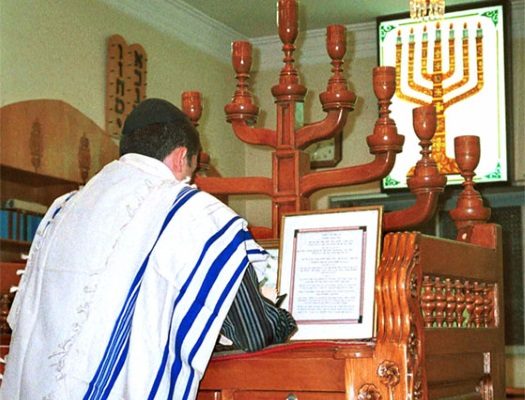
Should Sephardic Students Be Encouraged To Take On Chabad Customs?
Question: I am a principal of a Chabad-affiliated day school in a city where there are many families of Sephardic background that follow the Sephardic customs and these students make up a large portion of our student body. I was wondering if we should make a goal of having these students adopt Minhagei Chabad — vis-a-vis the nusach of davening etc. — or not?
Answer: A special thank you for reaching out to me on this, as this is a very personal topic for me and my family. Even though I am the oldest biological son of my parents sheyichyu, I always say that I have about ten older brothers! How so?
My 10 Older Persian Brothers
In 1979, many Jewish-Iranian boys were rescued from Iran after the Islamic revolution (without their parents) and brought to Crown Heights through the efforts of the NCFJE directed by Rabbi J.J. Hecht. A large group of these boys ended up living with my parents and many are rabbanim and shluchim today.
I remember clearly hearing from them how the Rebbe insisted that these children be served rice on Pesach — even though it is against the Chabad custom — as this is their minhag.
Elul Selichos at Brunoy
In addition, in the early years of the Rebbe’s nesius, a question came from the legendary menahel of the yeshiva in Brunoy, France Rabbi Nissan Nemenov. Many of his students were coming from Sephardic homes in Morocco and Tunisia and they have a custom to say Selichos for the entire month of Elul, as opposed to the prevailing Chabad custom to start in the week before Rosh Hashana. The Rebbe instructed him to encourage those students to indeed start from the beginning of Elul.
The following are some of many letters where the Rebbe addressed the Chinuch of Sephardic children in Chabad Educational institutions:
Guidance To The Morocco Shluchim
(1) In 5711 (1951), the Rebbe sent the following letter to the Shluchim in Morocco: “With regard to your questions concerning [your] involvement in the education of girls: It is difficult to give instructions from here regarding the particular matters involved. The general point is that there are several customs of modesty with regard to women and girls that have been practiced among Sephardim for several generations. Therefore, great care must be taken regarding the education of their girls so that it will not be said that from the time Lubavitch arrived in their community, a transition was made from a higher level of holiness to a lower one.” (Igros, Vol.4 p. 68; #821)
(2) In 5713 (1953), the Rebbe wrote a strongly-worded letter to the administration of a yeshiva in Eretz Yisrael that had many Sephardic students. The yeshiva schedule was that the students would be home the entire Tishrei. The Rebbe strongly encouraged them to try to have the talmidim be in yeshiva for Rosh Hashanah and Yom Kippur.
The Rebbe adds: “The great benefit for the talmidim is difficult to estimate and evaluate. Even though it is important not to “touch” (i.e., change) the customs that these students and their families have been practicing for generations, nevertheless it is certain that there are a few Chabad customs which they can adopt which are not contradictory to the above.” (Igros, Vol. 7 p. 347; #2204)
Chassidus Can Be Delivered in The Sephardic Accent Too…
(3) In 5715 (1955), there was a teacher named Rabbi Avraham Lieder who had many students of Yemenite origin in his class. He wrote to the Rebbe that he would like to encourage his students to change their Hebrew pronunciation to the classic Ashkenazic/Chassidic pronunciation. This would be important, the teacher thought, as these students would be giving over maamarim and he wanted them to be able to review them well.
The Rebbe responded: “Being that this pronunciation has been done this way for many generations, there is no reason to have them change it now. It is certain that giving over Chassidus with the Sephardic pronunciation, through which they are holding on to and continuing the path of their ancestors that have endured much Mesiras Nefesh and Kiddush Hashem, will cause great pleasure above and draw down blessings below.” (Igros Vol. 10 p. 5; # 2969)
“Don’t Enforce Nusach HaArizal”
(4) In 5738 (1978), the hanhala of the Reshet Oholei Yosef Yitzchok school network in Israel wrote to the Rebbe that they had a meeting and decided that going forward they would insist that all children will daven from the Nusach Arizal Chabad Siddur.
The Rebbe sharply responded: (a) “Who participated in the meeting? (b) Where are the minutes of the meeting? (c) Is this allowed according to Shulchan Aruch? (d) Did they think about how many students they will lose?” (Igros, Vol. 30 p. 26; #10,702)










